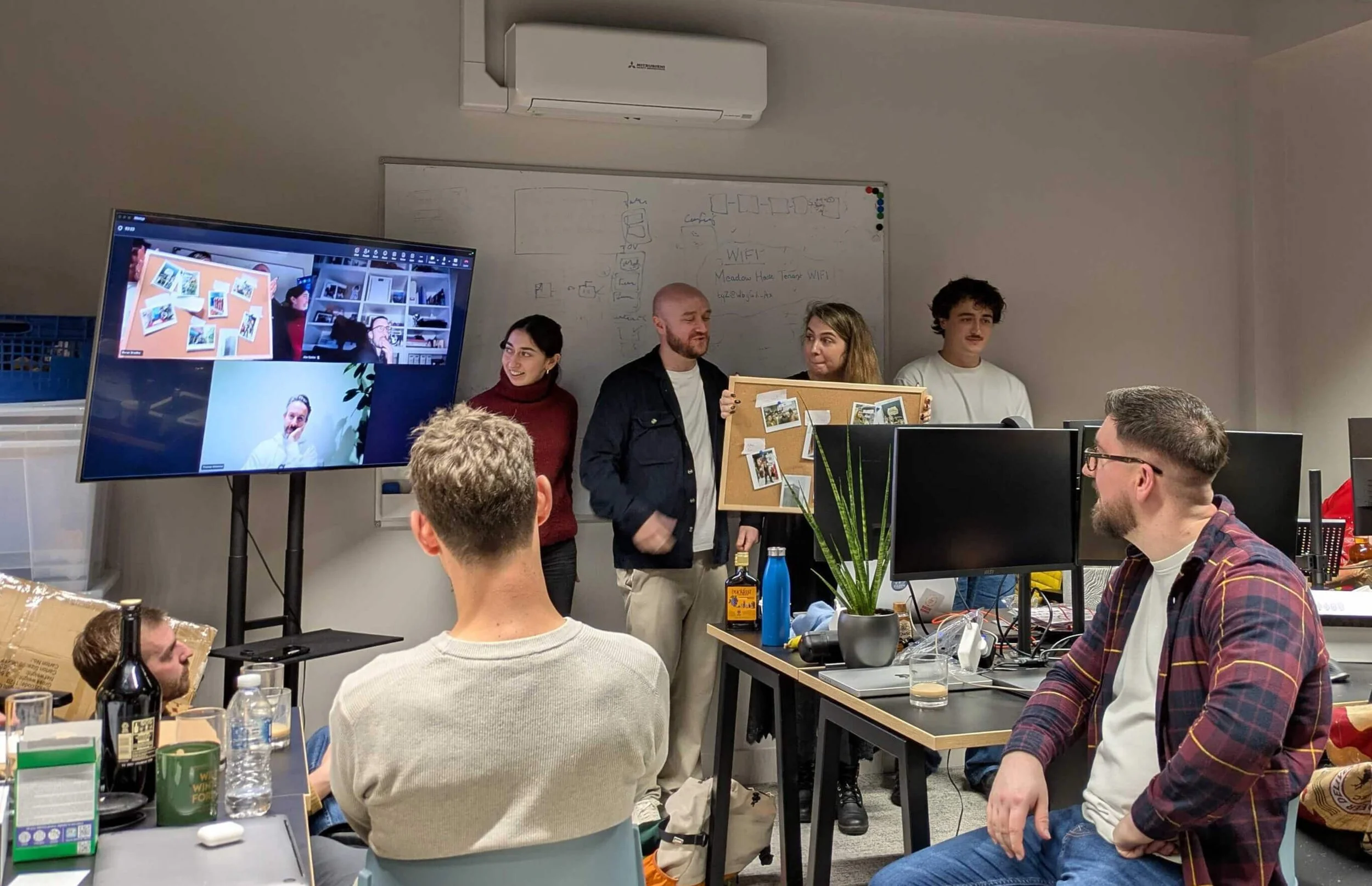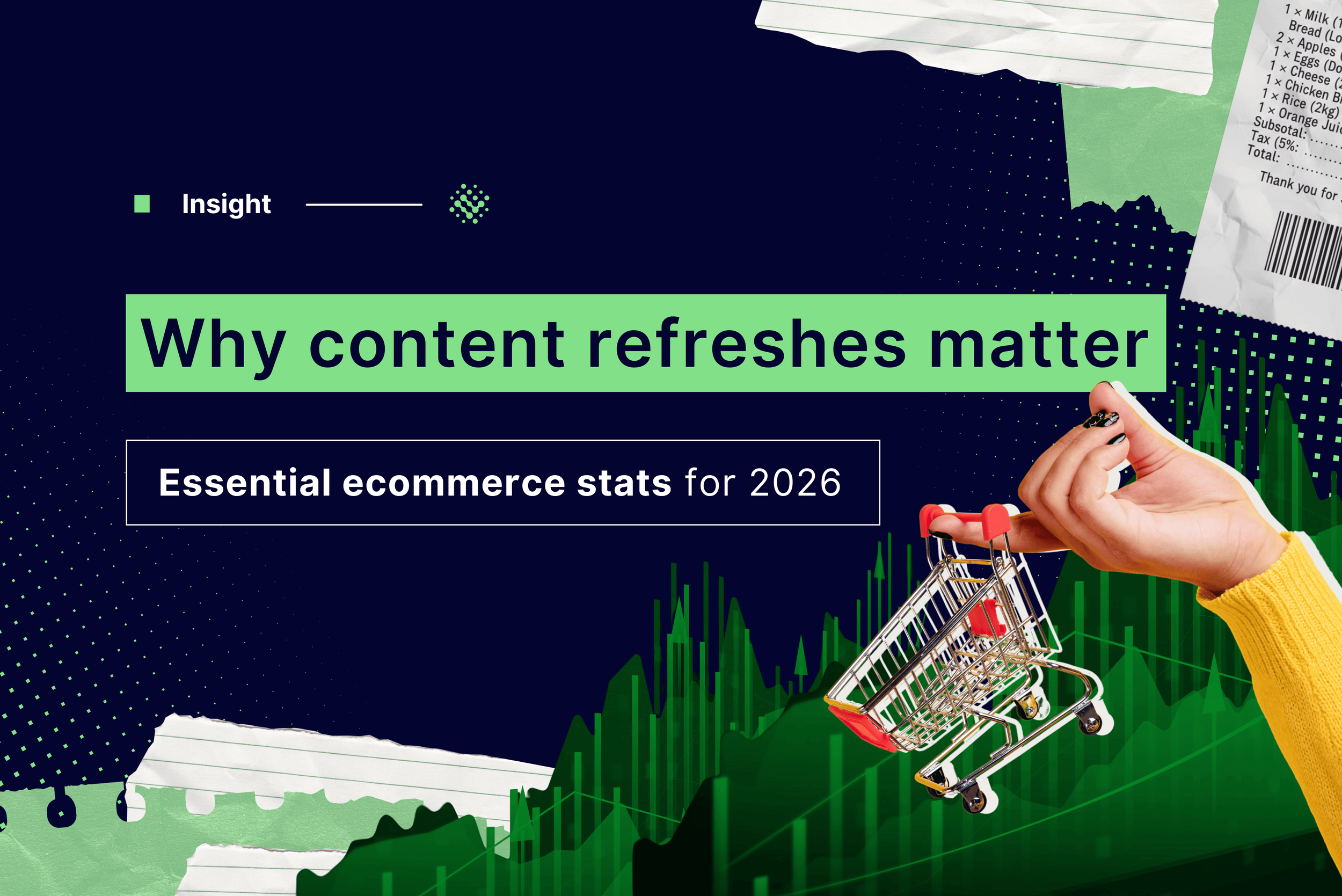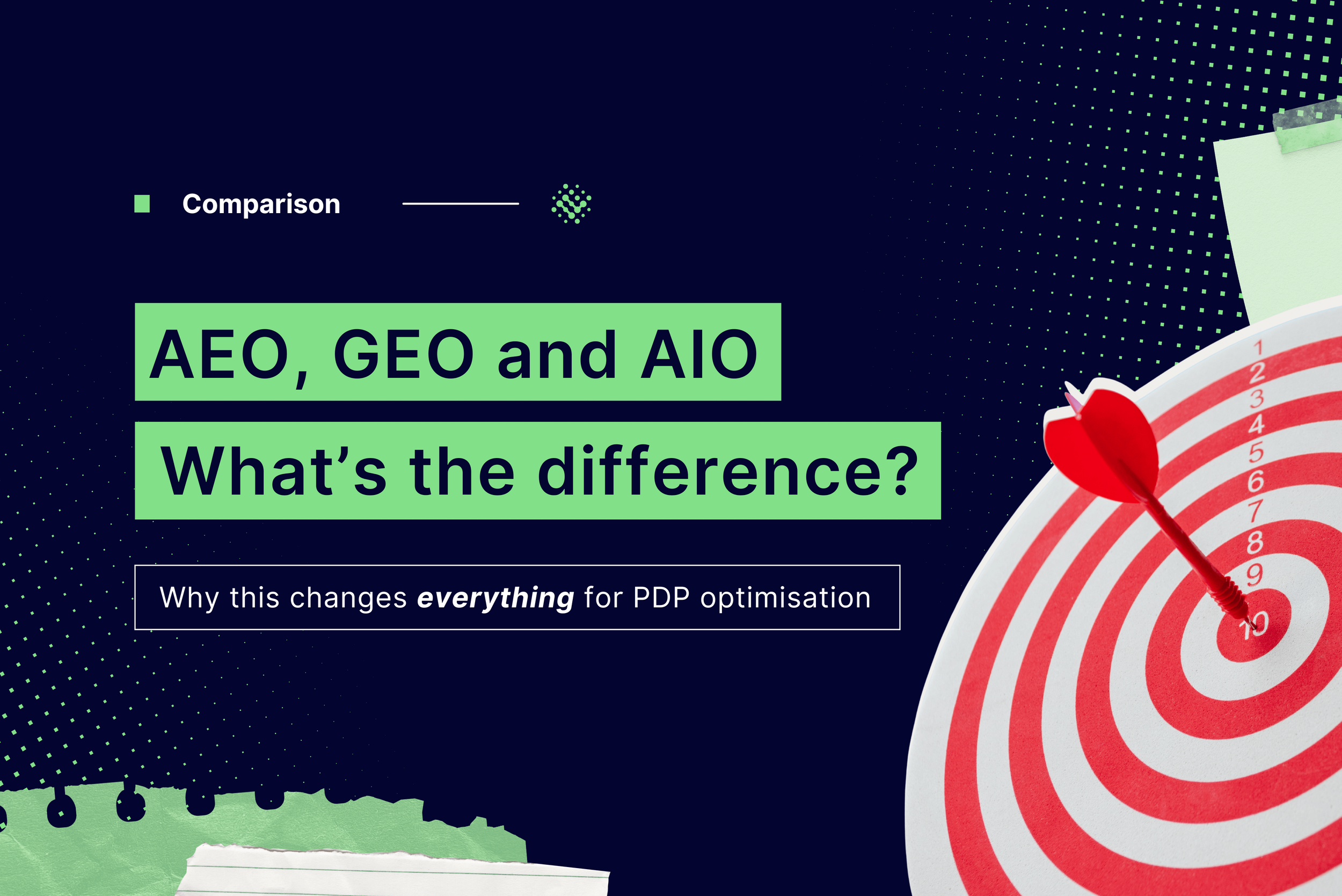The Conran Shop | Why work with an AI copywriter?
Learn more about The Conran Shop’s product storytelling, challenges, and ecommerce predictions in this inside look into the British luxury lifestyle retailer’s journey with AI.
Last week, Ocula sat down with Richard Voyce, Digital Director at The Conran Shop, for a candid conversation about how the luxury lifestyle retailer is approaching AI copywriting. In this interview, Richard shares the challenges his team has faced in creating best-in-class product content, their product storytelling strategy, and how they ultimately ‘took the leap’ to explore AI copy as part of their content workflow.
Listen to the audio here or read the full transcript below:
Miranda: I'm really, really excited to be here to chat with Richard Voyce, the Digital Director at the Conran Shop. Thanks so much for making the time today, Richard. First thing’s first, maybe if you could introduce yourself, and share a little bit about what makes the Conran Shop so special?
Richard: Yep, sure. So, I’m Digital Director at The Conran Shop. I wear quite a few different hats in the business: but essentially, I look after ecommerce. I'm also a kind of technical director, which means that I own platforms – like our commerce platform, which is Shopify Plus – as well as all the other technology stack that goes with it.
As well as this, I look after the broader digital side of the business – so not only e-com, but also digital marketing. Really, it’s quite a varied role with several different functions.
In terms of The Conran Shop, we're a heritage UK brand with over 50 years trading. Our founder, Sir Terence Conran, set up The Conran Shop to pull together a curation of some of the amazing designs and finds that he discovered whilst traveling the world and then brought back into Great Britain.
With this heritage, The Conran Shop spent many years effectively functioning like a department store, with departments ranging from lighting, homeware, furniture, gifting, kitchen and dining accessories… that kind of thing. More recently, we've repositioned the business and have set ourselves up as a brand in our own right – which means we no longer sell third party supplier products. All the products we sell are the Conran Shop’s own products, TCS products. They’re all designed in the UK by our own team, and we sell them through our website and through our store in London, in Sloane Square.
So, our big focus in terms of product has now shifted. We’ve now got a slightly narrower assortment – but a very much curated, considered assortment – of really nice products that are sustainable, ethically sourced, beautifully designed, and lovingly created by artisans.
Hopefully that gives you a good feel for the background of the company, and where we're going directionally.
Miranda: Yes, thank you, I think that's a really clear overview. And how many products would you say there are roughly now?
Richard: Assortment-wise, I think we've got a few thousand. So, certainly not as massive as we once were, but still a relatively large number… Which means that for a small team, it's quite a challenge to keep on top of those.
Miranda: Absolutely. And you say it's quite difficult to keep on top of all those product pages, so maybe let's talk about how you really define a successful product page for The Conran Shop. What specifically is most important to get right and keep on top of, and why?
Richard: Well… Because our products are considered a higher value and they're not day-to-day purchases, it means they need a lot of thought and care put in on our end when communicating with our customers. That’s why we spend a lot of time finessing the content that we have on our product pages, whether that's through the user experience, or through the creative. So, for example, we always make sure that we've got really good CGI of our sofa ranges, and that our customers can zoom right in on the details. For other products, we’ve invested a lot in our photography – we've gone to great pains to shoot them beautifully and make them look beautiful.
Then, with regards to our product descriptions… We've had copywriters in the past, and back then, we had quite a lengthy process of writing copy for our products.
Since then, we've downsized the business quite significantly, to the point where actually we no longer have copywriters in the team, and instead, we've picked it up within the remaining creative team.
Miranda: And what was most important for your creative team to get across in their product copywriting?
Richard: I guess there are two aspects to that. First of all, the storytelling of our products has always been very important to us, and still is. With a product that requires a higher level of consideration, or just a piece that's got a real story to tell, we need to make sure that we convey what makes that product so special. Because – comparatively speaking – there’s a big difference between one of our vases versus something you could buy in a supermarket. Our vase has been designed and handmade by an artisan, and that whole story needs to be highlighted in our copy and in our creative.
However, at the same time, we need to balance that very delicate storytelling with making sure that factually all the detail is correct too. Being accurate with that kind of detail is particularly important when we’re talking about heavy, large pieces of furniture, for example.
So, that's what’s been quite difficult for us – looking to achieve all that, but, now, having downsized the business to the extent that we have, looking to do it in an efficient way with less resource.
Miranda: So, it sounds like it's been a really big challenge to balance a limited team on one hand with still achieving that one-of-a-kind, unique feel in the copywriting?
Richard: Yeah, it is, it is a challenge. And it's probably even more of a challenge because we’re not just talking about brand new products here – at The Conran Shop, we've got products that have been in the set for quite some time, which means we need to go back and correct products that may have been written a year, two, three years ago.
As well as this, where we used individuals in the past to write copy, there was a bit of an inconsistency in the tone of voice. One of the challenges that we were looking to address by working with an AI copywriter tool was trying to get back to a point where exploring our product range feels like a consistent experience for our customers.
That was key for us, particularly with this engagement: looking to set a tone of voice that we feel is right for the business, for our brand. We want to inject some of our personality, but we don't want to over-egg it. Sometimes in our previous copywriting, I felt that we'd just gone over the top in describing things; that when you looked at what the product copy was describing, it didn’t really make sense for the product.
Also, when our creative team was writing the product copy, it actually began to feel quite repetitive. We were constantly using the same kind of language – for example, ‘elevate your room set’. It just felt like it was getting quite tired. And so, we wanted to try and establish a tone of voice that had personality, that was authoritative, and factual, and relatively concise – so customers can quickly and easily understand what it is that they're reading on the product page.
Miranda: Thanks, Richard, that makes sense – and you've touched on why it was that you felt an AI copywriter could be really helpful in solving some of these challenges: in terms of keeping a consistent tone of voice, in terms of minimising the repetitive feel from those same old words cropping up in your product copy again and again.
But, I guess, even getting to that point of considering an AI copywriter could be quite a big step for some ecommerce teams. So, what made you at The Conran Shop really open to considering an AI copywriter in the first place?
Richard: I think we'd basically just been looking for a solution off the back of the fact that we were struggling with time and resources, really. We have a small creative team, but that creative team is spread quite widely across the whole range of different functions, as you might imagine, whether they're creating advertising, or packaging, in store screens, online experiences, emails… The guys are doing it all, right? And, amongst all that, they're also trying to write copy for new product releases. It’s not a particularly sustainable solution.
However, recently, we’ve made some great strides in our newest product launches. We invested a lot of time in the creative and the words, and so it felt like we'd set the bar and set a kind of standard for our copy. If we could train AI to recognise what best looks like for us based on that, could we then use that AI to look back through our backlog of older products – which, as I described, had inconsistencies and challenges in them – with the goal to improve them and bring them back to the standard of the most recent products that we’d launched?
Miranda: 100%. It is such an incredibly exciting time that we're at a point when creative strategy and creative constraints can all be set by humans… But then all the manual burden of writing product content against those constraints can be shouldered by the AI tools. What do you think that will mean for The Conran Shop going forwards and the way your current processes work?
Richard: I think AI will help us to improve our time to market. And by that I mean that we’ll be able to launch products at a faster rate, with confidence. I'd like to think that a big benefit will also be within the SEO side of things- which we've not really touched on in this conversation so far, but SEO is something our creative team had neglected within our descriptions. I think there's a great benefit of AI copy there, particularly around writing well-structured metadata, adding in keywords, and so on. I think your AI copywriter’s ability to improve SEO is going to be a real benefit to us if we see that we get an uplift.
Aside from that… I think consistency is probably the biggest benefit for us. We want our customers to start feeling that there's a better sense of brand when they’re navigating and exploring products with us; it should all start to feel like it's part of one, cohesive experience.
Miranda: Yes, absolutely. At Ocula, we see such a huge impact for teams – like you say – in terms of team efficiency, in terms of SEO, all as a result of our AI copywriter’s consistent, accurate, brand aligned copy that's generated in bulk. And that of course comes hand in hand with big benefits to conversion uplift and traffic uplift as well too, right?
Looking at the time though, now, I think we've just got time for one final question.
And for this one, I wanted to ask you for your broader perspective about AI in ecommerce– and what you think is coming next. What would you predict for the future of AI in ecommerce? Where could it add value beyond product descriptions, thinking more broadly?
Richard: For me personally, a big benefit at the moment is asking AI to create reports, do jobs, do things, and take out some of the manual lifting that comes with running e-com operations. So, I can see AI replacing a lot of the more routine sort of tasks, and doing things that, otherwise, a merchandiser might do.
On the other hand, although I can see it working really well for some companies, I think that we'll probably continue to utilise our own in-house photography for our products. I think that will probably set us apart. But, you know, we'll see how that develops. Maybe it will get to the point where we can create amazing, branded experiences using AI that align with all of our branding principles.
Also… I think from a customer perspective, AI will probably just change the way that people shop, meaning that you’ll be able to just ask for things rather than having to search and filter. I think the way we search is going to be a lot more conversational. That's going to be interesting.
Miranda: Yes, it feels very much like a ‘watch this space’, doesn't it? Because, while a lot has happened in the AI and ecommerce space already, there's so much more to come.
And… I'd say that more or less wraps things up quite neatly for today. So, I just want to say thank you so much for your time, Richard, and for your insights into why AI copy feels right for The Conran Shop. And thank you, if you're listening, for listening in.












